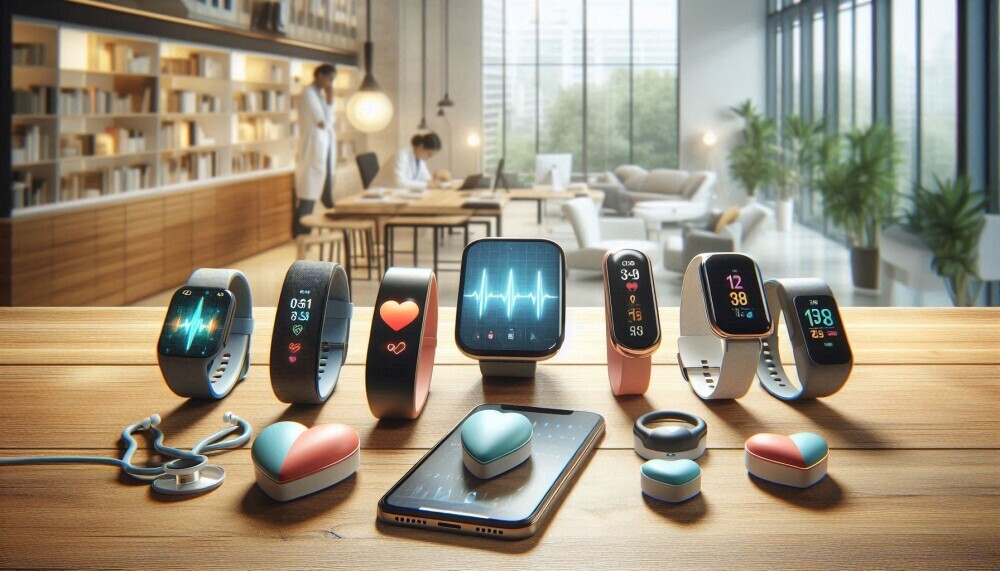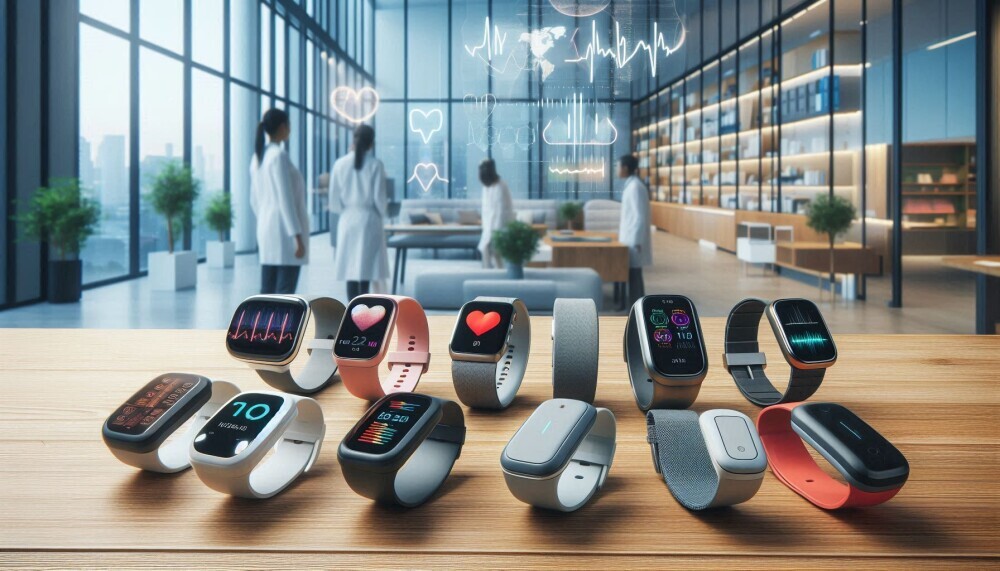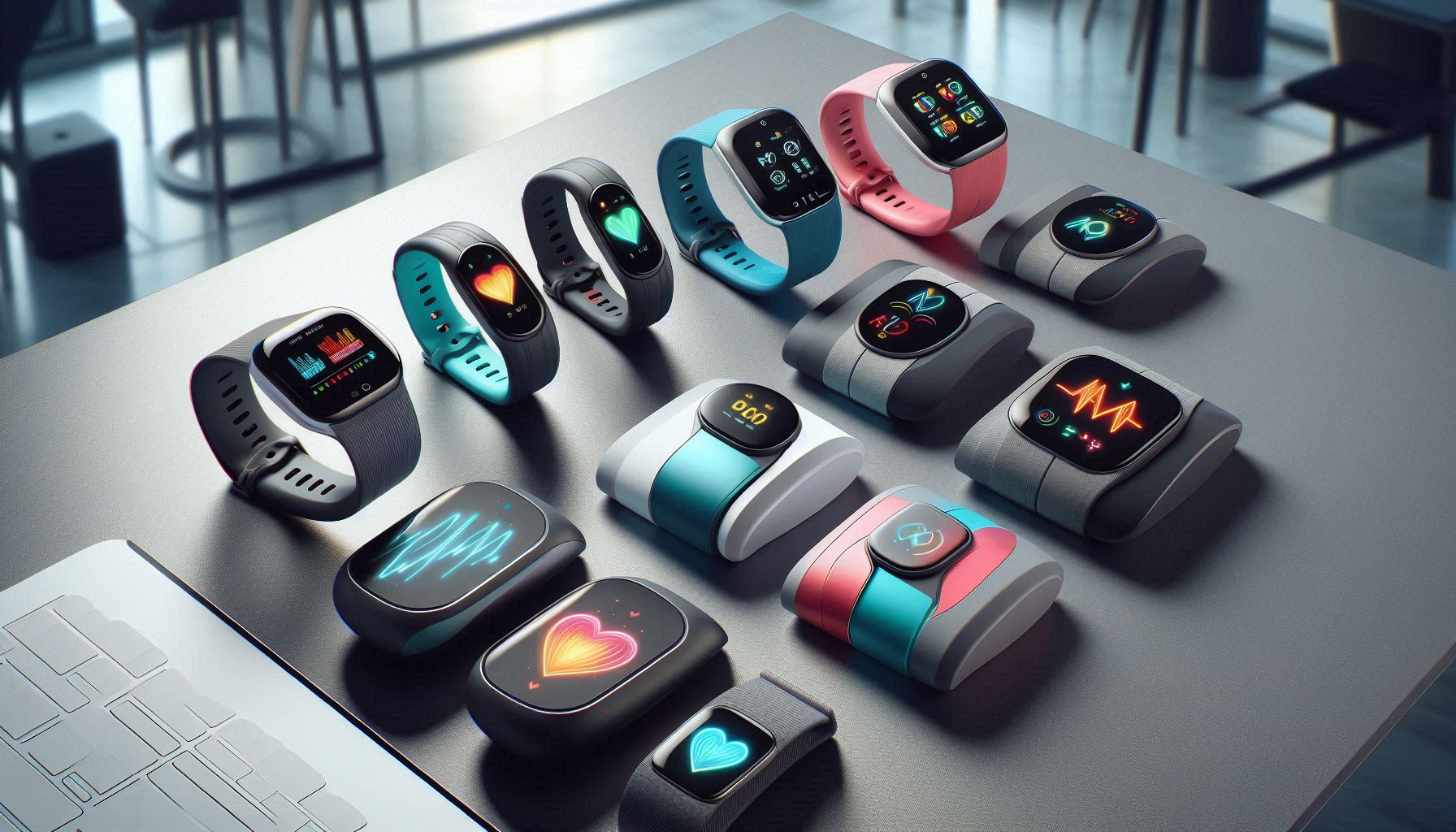Lots of people now track their health in many different ways, including wearable ECG monitors. Are they getting the best from their device? I mean, really getting the maximum benefit from them? This article will be taking a look at How To Get The Best From Your Wearable ECG Tracker Device. Do you use a wearable ECG device? If you do, please leave us a comment at the bottom of the page and let us know your thoughts on your device and which type of device you are using.

Introduction
Electrocardiogram (ECG) tracker devices have revolutionized personal health monitoring, enabling individuals to take control of their heart health like never before. From wearable fitness trackers and smartwatches to dedicated medical grade ECG monitors, these tools have made it possible for everyday users to detect irregular heart rhythms, monitor heart rate variability, and gain insights into cardiovascular performance in real time. As cardiovascular issues remain a leading global health concern, understanding how to leverage ECG technology effectively is critical.
Whether you’re an athlete tracking recovery, someone managing chronic heart conditions, or simply health conscious, your ECG tracker device can be a powerful ally. But to truly benefit from it, it’s not just about strapping it on and glancing at numbers. Using the device accurately, interpreting data correctly, and integrating it into a broader health and lifestyle routine are essential. This comprehensive guide will walk you through how to get the most from your ECG tracker device, ensuring you make informed decisions about your heart health every step of the way.
Why ECG Tracker Devices Matter
ECG trackers are designed to detect the electrical signals produced by your heart. Unlike a basic heart rate monitor, an ECG tracker provides deeper insight by capturing your heart’s rhythm and electrical activity, helping to identify abnormalities like atrial fibrillation (AFib), bradycardia, tachycardia, and more. These insights can be lifesaving, especially for individuals at risk of heart disease or those with a family history of cardiovascular issues.
ECG monitoring also helps athletes assess recovery and training readiness, since heart rate variability (HRV) often indicates stress or fatigue levels. For others, it can highlight how stress, sleep, diet, and physical activity affect heart health. The importance of ECG trackers isn’t limited to diagnosis. They also foster awareness and proactive health management, enabling users to detect potential problems before symptoms even arise.
Who Should Use an ECG Tracker?
- Individuals with existing heart conditions like AFib, arrhythmias, or post heart attack recovery patients.
- Fitness enthusiasts and athletes looking to track heart performance and recovery.
- Middle aged and older adults with increased cardiovascular risk factors.
- Health conscious individuals monitoring wellness through data.
- People managing chronic illnesses such as diabetes or hypertension.
While ECG trackers are not replacements for medical grade diagnostics, they serve as powerful supplementary tools that support early detection and preventive care.
How to Get the Best From Your Wearable ECG Tracker Device
Choose the Right Device
Not all ECG trackers are created equal. Devices like the Apple Watch Series 8, Fitbit Sense 2, Withings ScanWatch, and KardiaMobile offer varying degrees of accuracy, features, and comfort. Consider your lifestyle, health needs and budget when selecting the best device.
Read the User Manual Thoroughly
- Familiarize yourself with the device’s proper positioning, usage guidelines, and limitations. Incorrect usage can yield false readings or incomplete data.
Wear It Consistently
- For optimal tracking, wear your device regularly. Consistent usage helps in collecting longitudinal data that can be used to identify trends and spot anomalies.
Use It During Rest and Activity
- Capture ECG readings both at rest and after physical activity to get a complete picture of heart performance under different conditions.
Sync With a Health App
- Most ECG trackers connect to apps that store and analyse your data. Sync daily and review trends to better understand your cardiovascular health.
Interpret the Data Mindfully
- Don’t panic at every minor fluctuation. Look for consistent patterns or significant deviations. Consult your healthcare provider to discuss anything unusual.
Share Data With Your Doctor
- Many ECG apps allow you to export reports. Sharing this data during check ups can help your doctor make more informed decisions.
Monitor Related Metrics
- HRV, respiratory rate, and sleep quality also impact heart health. Keep track of these metrics alongside your ECG for a more holistic view.
Ensure Regular Software Updates
- Manufacturers often improve algorithm accuracy and add new features through updates. Keep your app and device firmware current.
Practice Heart Healthy Habits
- ECG data is only valuable if paired with action. Eat a balanced diet, exercise regularly, manage stress, and sleep well to optimize results.
Recommended ECG Tracker Devices
1.Apple Watch Series 8
- Price: £399
- Key Features: Built in ECG, irregular rhythm notifications, heart rate monitoring, oxygen saturation, fitness tracking.
- Pros: Seamless iOS integration, stylish design, FDA cleared ECG.
- Cons: Higher price, limited compatibility with Android.
2.Fitbit Sense 2
- Price: £229
- Key Features: ECG, stress management, HRV tracking, sleep monitoring, skin temperature.
- Pros: Affordable, strong battery life, holistic health tracking.
- Cons: ECG app not available in all countries, requires Fitbit Premium.
3.Withings ScanWatch
- Price: £299
- Key Features: Medical grade ECG, SpO2, sleep apnoea detection, 30 day battery life.
- Pros: Long battery life, traditional watch aesthetics.
- Cons: Fewer smart features, no touchscreen.
4.Samsung Galaxy Watch 6
- Price: £299
- Key Features: ECG, blood pressure, sleep and stress monitoring.
- Pros: Android friendly, vivid display, ECG for AFib detection.
- Cons: ECG feature requires Samsung phone, shorter battery life.
5.Kardiamobile by alivecor
- Price: £89
- Key Features: 6 lead ECG, FDA cleared, accurate rhythm detection.
- Pros: Highly accurate, physician preferred, compact.
- Cons: Not wearable, manual readings required.
6 Frequently Asked Questions
1. What does an ECG tracker measure?
Answer:
An ECG (Electrocardiogram) tracker measures the electrical activity of your heart. It records the timing and strength of each heartbeat, helping detect irregularities such as arrhythmias or signs of stress and fatigue. It’s commonly used to monitor heart health over time or catch early warning signs.
2. How accurate are wearable ECG trackers?
Answer:
Wearable ECG devices like smartwatches and smart rings are not as comprehensive as clinical grade ECG machines but are impressively accurate for consumer use. Many are FDA cleared or CE marked, ensuring they meet certain accuracy standards. They’re highly effective for tracking trends and spotting anomalies.
3. Can I use my ECG tracker without medical training?
Answer:
Yes. Most ECG trackers are designed for everyday users and come with apps that interpret your data in a clear, user friendly way. While they don’t replace a doctor’s diagnosis, they empower you to monitor your health and share the data with your physician.
4. How often should I take ECG readings with my device?
Answer:
This depends on your health goals or medical needs. For general wellness, 1 to 2 readings per week is sufficient. If you’re monitoring a known condition, your healthcare provider may recommend more frequent checks. Always follow medical advice.
5. Can ECG trackers detect heart attacks?
Answer:
Most ECG wearables can detect some heart rhythm abnormalities like AFib (atrial fibrillation), but they are not designed to diagnose or confirm a heart attack. If you experience chest pain or symptoms of a heart attack, seek emergency care immediately.
6. Do I need to pair my ECG tracker with a smartphone?
Answer:
Yes, most ECG trackers sync with a smartphone app where your data is stored, analysed, and visualized. This allows you to track long term trends, receive alerts, and easily share reports with healthcare professionals.
How to Get the Most From Your ECG Tracker
- Stay Consistent: Like any fitness or health tool, consistency is key. Record ECGs regularly to build a comprehensive heart health profile.
- Understand Context: ECG readings should be understood within the context of your lifestyle. High stress, dehydration, or poor sleep can impact results.
- Keep a Health Journal: Use apps or notebooks to record how you felt before and after readings, helping connect symptoms with ECG data.
- Act On Insights: If your tracker shows patterns like frequent AFib or unusually low HRV, don’t ignore it. Take your findings to a professional.
- Maintain the Device: Clean sensors regularly, store properly, and avoid moisture damage. A well maintained device lasts longer and delivers better data.

Conclusion
ECG tracker devices have made personal heart health monitoring more accessible and actionable. With just a tap or wrist movement, users can capture vital data once only available in clinics. These devices empower you to better understand your body, spot early warning signs, and make meaningful lifestyle changes. But as powerful as they are, their value depends on how they are used.
To truly get the best from your ECG tracker device, approach it not as a gadget but as a valued partner in your health journey. Commit to learning its features, integrating its insights into daily decisions, and collaborating with healthcare professionals to stay ahead of any potential issues. When used wisely, your ECG tracker becomes more than a device. It becomes a gateway to better heart health and a more informed, proactive lifestyle.
Our Thanks!
We would like to offer our thanks to you for taking the time to read this article on How To Get The Best From Your Wearable ECG Tracker Device. We hope that you have found it helpful. Why not take a look at our blog? There are lots of really helpful and informative articles on a range of wearable health tech device subjects. You might enjoy our related articles which are titled Top 4 ECG Monitors For I-Phone, The Best 5 ECG Monitors For Running and 5 Best ECG Monitors For Home Use.
Please let us know in the comments which brand and type of wearable ECG tracker device you are currently using or plan to buy in the future!
**Here is a bit of transparency. Our website www.vertevia.com does contain affiliate links and Amazon links. So, if you did make a purchase through the website, we may receive a small commission. This is at no extra cost to you whatsoever. It’s just a way for you to support us as we continue to bring you top quality content**
All the best!
Eamon

